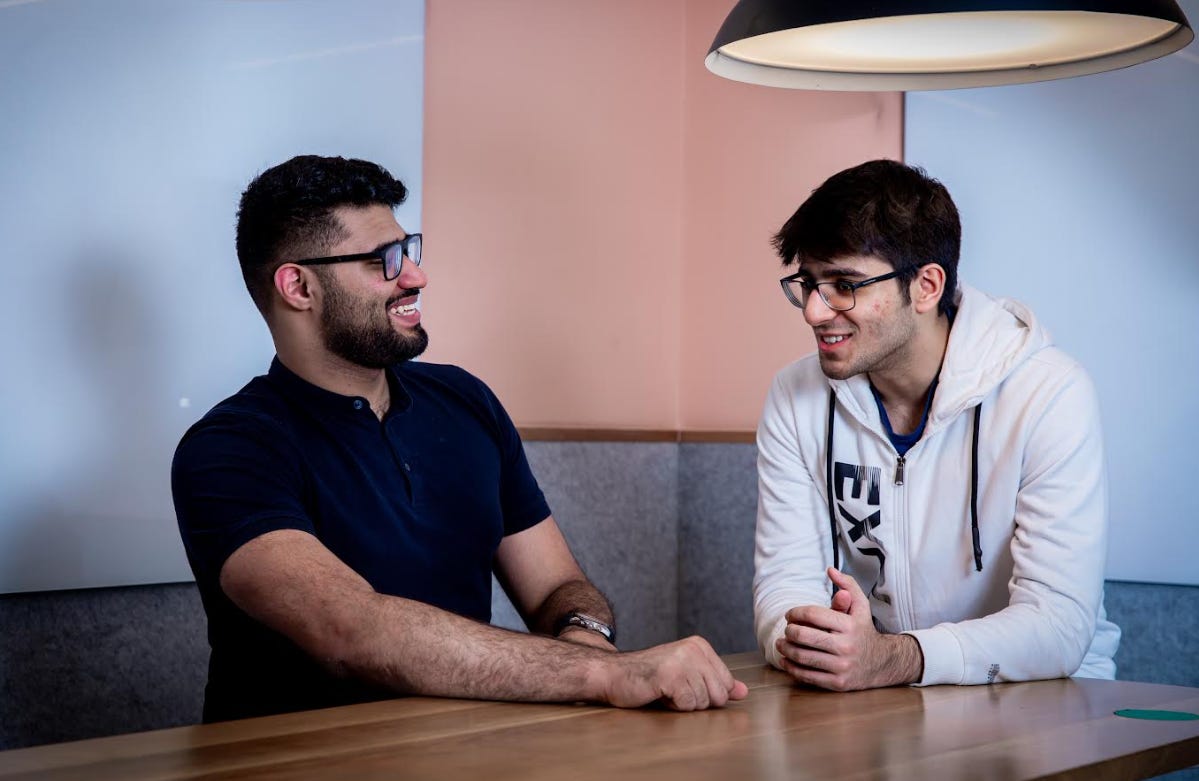How two 19-year-old dropouts built a $570 million grocery delivery startup in India
This is the story of the two young Indian entrepreneurs, who founded the 10 min grocery delivery service, "Zepto" which is now a unicorn with $1 Billion dollar+ market valuation.
Zepto is a startup that delivers groceries in 10 minutes. It was founded by Aadit Palicha and Kaivalya Vohra, two childhood friends who are 19 and 20 years old. They quit the computer science program at Stanford University to return to India and start their business in April 2021. They are the youngest entrepreneurs on the IIFL Wealth-Hurun India Rich List 2022, with a net worth of Rs 4,200 crore each.
From Dubai to Stanford
Palicha and Vohra met in Dubai, where they grew up and attended the same school. They both had a passion for coding and entrepreneurship since they were young. They participated in various hackathons and competitions and even built their own apps and websites.
They got accepted into Stanford University, one of the most prestigious institutions in the world, to pursue a degree in computer science. However, after one year, they decided to drop out to follow their dreams of building a startup.
“We felt that we were learning more by doing things on our own than by sitting in a classroom,” Palicha said in an interview with [The Times of India]. “We wanted to solve real problems and create value for people.”
From KiranaKart to Zepto
They had a simple WhatsApp group, with 256 people from their colony ordering items by leaving a message on the group. These two young guys, delivered the items themselves, rode the bikes, packed them themselves and went to the stores on their own during the pandemic. This was the start of their journey to Zepto.
They moved to Mumbai, India, and launched their first venture, KiranaKart, which was a platform that allowed customers to order groceries from local stores. However, they faced challenges finding a product-market fit and scaling their operations.
They pivoted to Zepto, a 10-minute grocery delivery service that uses a network of micro-warehouses or ‘cloud stores’ to fulfil orders. They were inspired by the demand for fast and convenient delivery during the pandemic.
“We realized that people wanted to get their groceries as quickly as possible, without compromising on quality or price,” Vohra said in an interview with [Forbes India]. “We decided to build our own supply chain and logistics system, using technology and data to optimize every aspect of the process.”
From Y Combinator to Unicorn
They applied to Y Combinator, one of the most renowned startup accelerators in the world, and got accepted into its winter 2021 batch. They received mentorship and funding from some of the best investors and entrepreneurs in the industry.
They launched Zepto in April 2021 and quickly expanded to multiple cities across India. They offer over 5,000 products, including fresh produce, daily essentials, health products, and more. They have a loyal customer base and a high retention rate.
They raised $60 million in a Series A round led by Glade Brook Capital in November 2021, valuing the company at $300 million. They also raised another $100 million in December 2021, doubling their valuation to $570 million.
They became the youngest entrepreneurs on the IIFL Wealth-Hurun India Rich List 2022, with a net worth of Rs 4,200 crore each. They are also among the fastest-growing startups in India and the world.
From Dreamers to Doers
Palicha and Vohra are not only successful entrepreneurs but also role models for many young aspiring founders. They have shown that age is no barrier to achieving one’s goals and that passion and perseverance can overcome any obstacle.
They have also given back to the community by supporting various social causes and initiatives. They have donated groceries to underprivileged families during the lockdown, sponsored education for girls from low-income backgrounds, and mentored other young entrepreneurs.
They have also stayed humble and grounded throughout their journey. They still live with their parents, share a room with their siblings, and drive a second-hand car.
“We don’t think of ourselves as rich or famous,” Palicha said in an interview with [The Economic Times]. “We are just two guys who love what we do and want to make a difference in the world.”




